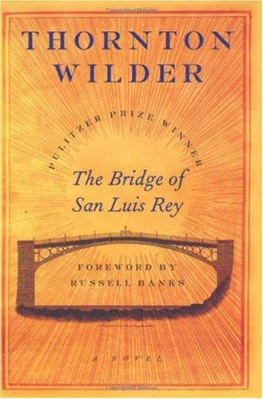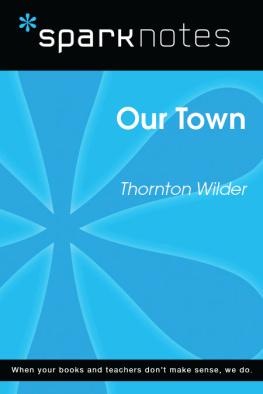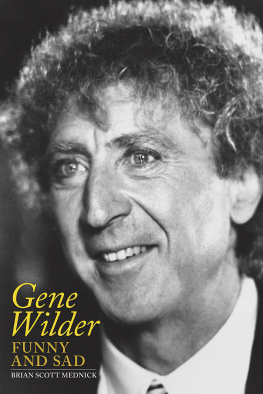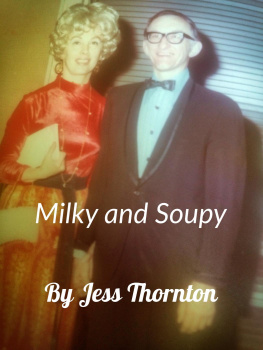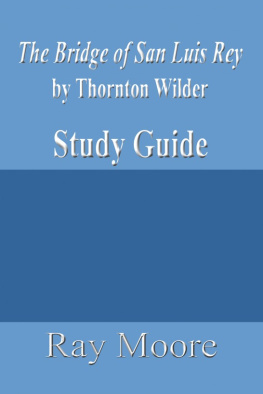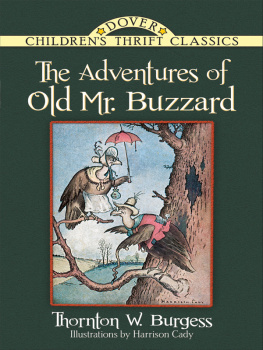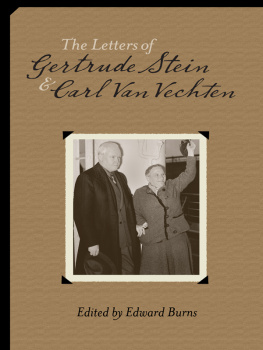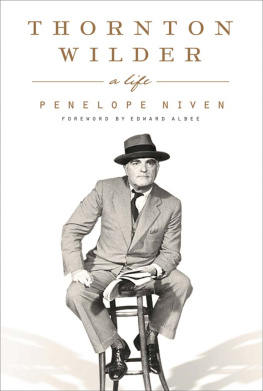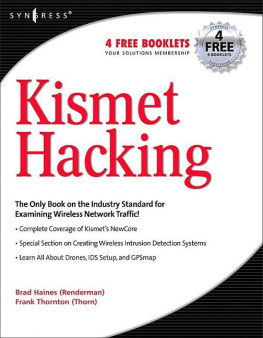Thornton Wilder - The Selected Letters of Thornton Wilder
Here you can read online Thornton Wilder - The Selected Letters of Thornton Wilder full text of the book (entire story) in english for free. Download pdf and epub, get meaning, cover and reviews about this ebook. year: 2010, publisher: HarperCollins e-books, genre: Detective and thriller. Description of the work, (preface) as well as reviews are available. Best literature library LitArk.com created for fans of good reading and offers a wide selection of genres:
Romance novel
Science fiction
Adventure
Detective
Science
History
Home and family
Prose
Art
Politics
Computer
Non-fiction
Religion
Business
Children
Humor
Choose a favorite category and find really read worthwhile books. Enjoy immersion in the world of imagination, feel the emotions of the characters or learn something new for yourself, make an fascinating discovery.

- Book:The Selected Letters of Thornton Wilder
- Author:
- Publisher:HarperCollins e-books
- Genre:
- Year:2010
- Rating:5 / 5
- Favourites:Add to favourites
- Your mark:
- 100
- 1
- 2
- 3
- 4
- 5
The Selected Letters of Thornton Wilder: summary, description and annotation
We offer to read an annotation, description, summary or preface (depends on what the author of the book "The Selected Letters of Thornton Wilder" wrote himself). If you haven't found the necessary information about the book — write in the comments, we will try to find it.
The Selected Letters of Thornton Wilder — read online for free the complete book (whole text) full work
Below is the text of the book, divided by pages. System saving the place of the last page read, allows you to conveniently read the book "The Selected Letters of Thornton Wilder" online for free, without having to search again every time where you left off. Put a bookmark, and you can go to the page where you finished reading at any time.
Font size:
Interval:
Bookmark:
The Selected Letters of
THORNTON
WILDER

EDITED BY ROBIN G. WILDER
AND JACKSON R. BRYER
Foreword by Scott Donaldson

Letters are the only form in all literature, in all the arts, which reposes on the communication of one to one. It is this condition which renders [them] the pre-eminent vehicle for that aspect of life which is generally excluded from all literature except the novel: those innumerable trifles of the daily life, that rain of trifling details, pleasing and vexatious, which falls upon the just and the unjust and which is also an inescapable concomitant of all human life.
THORNTON WILDER ,
JOURNALS, AUGUST 20, 1951

Part One
BEGINNINGS: 1909-1920
Part Two
BRIDGES: 1920-1929
Part Three
RLES: 1929-1939
Part Four
WAR AND AFTER: 1939-1949
Part Five
HONORS: 1950-1960
Part Six
JOURNEYS: 1961-1975

AS WE CONTEMPLATED HOW BEST TO PRESENT THORNTON Wilders correspondence, we were guided, as it were, by two seemingly contradictory statements. One was Wilders own remark, in a February 12, 1964, letter to his close friends Gilbert and Janet Troxell: Did I ever tell you I once heard my mother saying to a friend (my mother who never made wise cracks) Its hard enough to write novels anyway, but its especially hard for Thornton because hes illiterate? The second was playwright and director Garson Kanins oft-quoted response when he was asked where he went to college: I never did; I went to Thornton Wilder.
Wilders correspondence certainly gives more evidence of the extensive range of his vast store of knowledge and learning than it does of his illiteracy. Nonetheless, we believe that the paradox implied in these two statements is one of many puzzling and challenging aspects of Wilder, and we have sought to preserve it in this collection. We have corrected only the most obvious slips of his penthe same word repeated twice in succession, uncrossed ts, letters transposed within a wordand, for the most part, retained his misspellings, poor punctuation, misquotations (corrected in footnotes), and inadvertent omissions. Only in cases where meaning is unclear have we supplied, in angle brackets (used here because Wilder occasionally used square brackets), missing punctuation, missing words, or corrected spellings. Where we supply a correction to Wilders text, we do not leave a space between Wilders word and the angle-bracketed correction; in instances where we supply a missing word, we leave a space.
While some of Wilders epistolary infelicities can probably be attributed either to the fact that he surely wrote many letters rapidly and almost exclusively in holograph form or to the fact that his mind often moved more quickly than his pen, we feel that his carelessness about such details also testifies to something quite important about him. He was much more concerned with communicating concepts and dealing with large issues than he was with such mundane matters as spelling and punctuation. We believe that retaining these errors preserves an important aspect of the flavor of Wilders correspondence and that doing so in no way interferes with the readers appreciation of his skills as a letter writer.
From the very beginning, Wilders wide-ranging acquaintance, even as a teenager, with literature, music, and the visual arts was apparent in his correspondence. He was fluent in four foreign languagesFrench, German, Spanish, and Italianand his letters are frequently peppered with quotations in those languages, as well as with the occasional Latin phrase. We have translated all of these foreign-language passages, no matter how brief, unless they appear in a standard English dictionary. Similarly, we have tried to identify lesser-known public figures, writers, composers, artists, and their works to which Wilder alluded in his correspondence. He had a large worldwide circle of friends and acquaintances, and we have attempted to explain references to them as well. Readers should assume that any person we do not footnote could not be identified. We feel that, in aggregate, these references suggest the extraordinary scope of Wilders social and cultural landscape and are a testimony to his seemingly insatiable desire to learn more and to meet new people from all walks of life. Although this means that our edition is heavily footnoted, we have tried to keep our notes brief and succinct, and to provide more detailed background information in the introductions to each of the books six parts.
Of necessity, we have had to make compromises in the interests of clarity and consistency. We have standardized all of Wilders dashes to one em in length, although he sometimes used a hyphen instead of a dash (especially in his very few typewritten letters), or, in other instances, used dashes longer than one em in holograph letters. Especially in his later years, Wilder frequently used an equals sign instead of a colon. In most instances, we have rendered these as colons. For items of correspondence on which a return address is printed as letterhead, we have transcribed that information and placed it within parentheses at the head of the item. In cases where Wilder wrote a return address, we have placed that at the top of the letter. Sometimes Wilder wrote a return address above the letterhead of the stationery, but we have always placed it below the letterhead, regardless of where he put it. We have, however, tried to place his holograph return addresses accurately with respect to whether they appeared on the left or right side of the page or were centered.
When Wilder provided a date, he almost always did so at the head of the letter; when he placed the date at the end of the letter, we have moved it to the head and noted the change. When Wilder did not provide a date or gave a partial or inaccurate date, we have added an approximate or conjectured date (usually with a question mark) in angle brackets; or we have supplied one in angle brackets based on internal evidence or a postmark (indicated by the abbreviation P.M.); or, in a few instances, we have used a date supplied by the recipient (as indicated in a footnote). We have also used a question mark in angle brackets or an angle-bracketed word or words to denote a conjectured reading of Wilders handwriting. Wilder occasionally added text in the margins or above the salutation of his letters. We have noted the location of this added text in angle brackets. When Wilder indicated that this marginal material should be inserted in the text of a letter, we have placed it in the text in boldface type and have given, in angle brackets, the reason for the placement. Often, probably in an effort to keep his letters to one or two pages, Wilder wrote text or a postscript perpendicularly in the margin of the last page. We have not noted these additions and have treated such material as part of the text of the letter.
We have used the following abbreviations in the headings to describe physical form: ACS (autograph card signed); AL (autograph letter unsigned); AL (Draft) (unsigned autograph letter found only in draft form); ALS (autograph letter signed); APCS (autograph postcard signed); TL (Copy) (letter found only in transcribed typewritten unsigned form); TLS (typewritten letter signed); and WIRE (telegram). The number of pages cited at the head of the letter refers to the number of sides of paper on which the original is written, regardless of whether or how Wilder numbered the pages. We have listed the repository of each letter in the heading. In cases where we located photocopies and/or transcriptions as well as the original copy of an item, we have noted only the location of the original. For items owned by private individuals, we have provided no identification of those individuals. We have used the following abbreviations for repositories:
Font size:
Interval:
Bookmark:
Similar books «The Selected Letters of Thornton Wilder»
Look at similar books to The Selected Letters of Thornton Wilder. We have selected literature similar in name and meaning in the hope of providing readers with more options to find new, interesting, not yet read works.
Discussion, reviews of the book The Selected Letters of Thornton Wilder and just readers' own opinions. Leave your comments, write what you think about the work, its meaning or the main characters. Specify what exactly you liked and what you didn't like, and why you think so.

